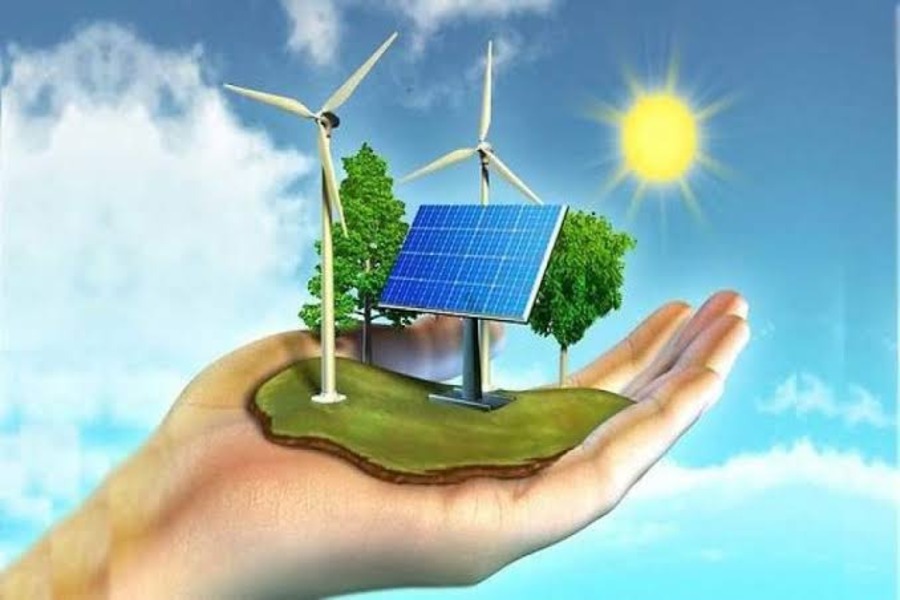
Published :
Updated :

The draft renewable energy policy 2025 lacks decarbonisation and financing roadmaps to boost the country's renewable energy (RE) sector.
It also lacks green taxonomy and support to ordinary citizens or individuals to go green.
Energy experts and environmentalists made the observations at a press conference in a city hotel on Sunday, organised by the Coastal Livelihood and Environmental Action Network (CLEAN).
The draft policy would not ensure the country's energy security, and instead would increase dependency on fossil fuels and allow businesses to earn higher profits, ultimately adding financial pressure on public life, they said.
If renewable energy projects receive the same level of support as fossil fuel-based projects currently enjoy, the private sector alone could drive significant progress in this sector, they viewed.
The Power Division under the Ministry of Power, Energy and Mineral Resources (MPEMR) prepared the draft policy styled "The Renewable Energy Policy 2025" and put it on for comments from the interested firms and individuals by today (Monday) before its finalisation.
"The draft policy has reduced renewable energy targets to unrealistic levels-6,145 MW or 20 per cent of the country's overall electricity output by 2030 and 17,470 MW or 30 per cent of the overall electricity output by 2041, said CLEAN Chief Executive Hasan Mehedi.
There is no coordination plan among ministries, no implementation strategy, and no financing or investment roadmap for the sector, he bemoaned.
Research Director of the Centre for Policy Dialogue (CPD) Khondaker Golam Moazzem said different government policies present conflicting renewable energy plans, which could confuse investors.
"We must recognise that expanding renewable energy within an economic framework heavily dependent on fossil fuels is not practical," he said.
Additionally, the policy overlooks the crucial role of foreign direct investment (FDI), which is essential in the current context, said Mr Moazzem.
Bangladesh must move away from relying solely on the Integrated Energy and Power Master Plan (IEPMP) and adopt more accurate electricity demand forecasting.
Without reliable data, renewable energy projections will not be effective, he added.
"While most countries have set net-zero targets, Bangladesh has yet to establish such a goal," coordinator of Friends of the Earth Asia Pacific Bareesh Hasan Chowdhury said. "The inclusion of a carbon market is also irrelevant in this context."
Moreover, the policy lacks a broader vision for the energy transition, he said,
adding that without clear targets, this policy is like a rudderless boat, unlikely to deliver meaningful results.
"Our renewable energy plans are formulated in a way that leaves the targets vague. There is no clear mention of how much electricity will be produced from which sources, making it difficult to achieve these goals," said director of the Center for Energy Research Shahriar Ahmed Chowdhury.
Meanwhile, countries like China, Pakistan, India, and Vietnam are rapidly progressing in this sector, he added.
He emphasised that only realistic policy support from the government is needed. If renewable energy projects received the same level of support as fossil fuel-based projects, the private sector alone could drive significant progress in this sector, he said.
Azizjst@yahoo.com


 For all latest news, follow The Financial Express Google News channel.
For all latest news, follow The Financial Express Google News channel.